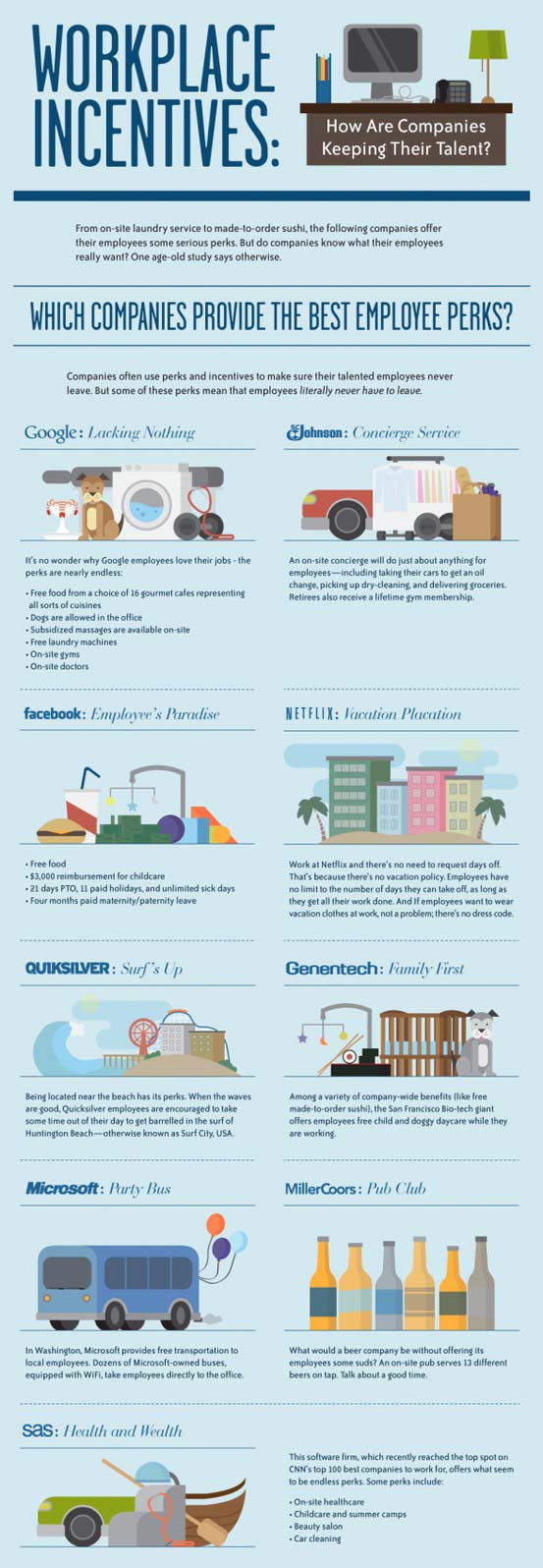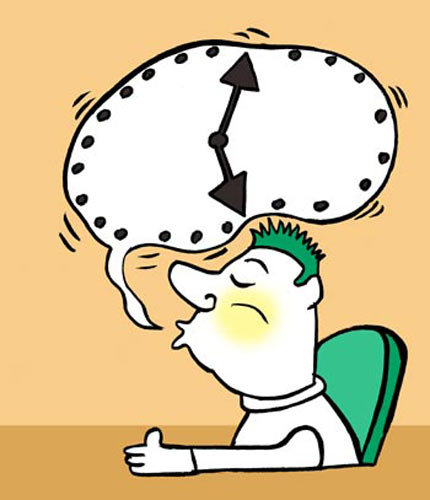 | « Back to article | Print this article |
Top 10: Simple ways to be HAPPY at work!
Forget yearly appraisals, try these simple ways to be happy at work. Illustration by Uttam Ghosh
Money can't buy you happiness, people say.
But that beautiful pay check we receive at the end of every month does, after all, give a lot of happiness.
However, money is dear to everyone, especially to the employers and giving away fat pay checques every month is not a very attractive option.
So here are some alternatives that can make most employees happy.
Courtesy
Please click NEXT to continue reading...
1. Improving workplace environment
How?
Here are some of the wackiest (and best) workplace settings that most employees would die to be part of:

2. Flexitime
A variable work schedule in contrast to the standard 9-to-5 jobs that most employees are expected to follow.
In this system, usually, employees have to work in the office for a core period (say 50 to 60 per cent of the total required time) and rest of the day can be used by them to work/rest, subject to achieving total number of hours per week the employer expects and finishing all the necessary work.
3. Flex-place
This policy gives the employee the freedom to choose the location of work.
For instance, an employee can choose to work in the office or from home or from a client's office or even a restaurant.
4. Enrol in a club
5. Health benefits
6. Discounts
Look out for discounts in travel, accomodation or food.
Even if the company is offering a 5 per cent increase in the discounts for its employees, it will make you feel happy.
7. Department dinners
Sharing a meal with people from your department or other company-sponsored activities are designed to keep your spirits up.
Even team lunches to celebrate small successes are really important.
8. Holidays
Even a minimal or unexpected increase in the number of sick and vacations days granted will go a long way in lifting your spirits.
9. Better stock options
Stock options from your employer give you the right to buy a specific number of shares of your company's stock during a time and at a price that your employer specifies.
Studies show that creating excellent employee stock ownership plans (ESOPs) can help in talent retention.
10. Freedom at workplace
Netflix's corporate culture is called the "freedom and responsibility" culture.
They focus on what people get done, not on how many days they worked.
They care about great work and not hard work (with long hours and longer weeks).
So they just don't have a vacation policy implying no one tracks how many hours in a day they worked or number of days leave taken.
Their CEO, Hastings, himself takes lots of vacation to set a "good" example
Perhaps seeing the following info graphic can help you (and the companies) understand how the incentive system needs to be designed:

Courtesy









